- About
- Academics
- Admissions & Aid
- Life
- Research
- News & Events
Program at a Glance
Learn how human behavior is influenced by experiences, history, and culture.
Department
Learn More
Our program advances the understanding and application of psychology among our students, emphasizing teaching the history, culture, and role of Black people in the psychological sciences.
Bachelor of Science in Psychology
Learn More
The B.S. requires 54 semester hours in psychology. These hours must include the specified courses, along with science electives chosen in consultation with your advisor.
Bachelor of Arts in Psychology
Learn More
Earn the Minor
Learn More
To complete a minor in psychology, a student must take HPSY 101, 102, 210, 210L, and nine elective hours in the department.
TEDX: MOREHOUSE COLLEGE
Personality Psychology Professor David Wall Rice delivers an impactful talk that provides variables to help you identify your freedoms by finding your “buddy!” David Wall Rice is a Professor of Psychology at Morehouse College that studies strengths-based behaviors that promote the understanding of elicit behavioral bests.
About Psychology
-
Overview
PSYCHOLOGY DEVELOPS THOUGHTFUL SERVANT LEADERS THROUGH A COMPLETE UNDERSTANDING OF HUMAN BEHAVIOR.
Our program advances the understanding and application of psychology among our students, emphasizing teaching the history, culture, and role of Black people in the psychological sciences.
We equip our students with an understanding of fundamental and evolving theories and concepts in psychology to provide a strong foundation for understanding the basic principles of research in the behavioral sciences. We further prepare our students for academic and professional pursuits by providing awareness of the African American experience and other cultural perspectives with the skills, training, and ethical behavior needed to lead in careers ranging from clinical practice to education, research, social work, business, and other areas.
Psychology majors may choose the Bachelor of Arts or Bachelor of Science degree. While the Bachelor of Arts provides a broader scope of classes within the major, the Bachelor of Science is an acceptable route for pre-medical and other pre-health professions. It prepares students for a wide range of career options. It gives them an excellent foundation for graduate work in the neurosciences, biology, public health, and clinical psychology. Both degrees provide students with a strong foundation for work in various social services occupations, whether graduates obtain employment or pursue graduate degrees in psychology, public health, social work, or other related areas.
-
Outcomes
Outcomes
- Demonstrate familiarity with the major concepts, theoretical perspectives, empirical findings, and historical trends in psychology
- Understand and apply basic research methods in psychology, including research design, data analysis, and interpretation
- Respect and use critical and creative thinking, skeptical inquiry, and, when possible, the scientific approach to solve behavior and mental processes
- Apply psychological principles to personal, social, and organizational issues
- Recognize, understand, and respect the complexity of sociocultural and international diversity
- Develop insight into the behavior and mental processes of themselves and others and apply effective self management and self-improvement strategies
-
Earn the Bachelor of Science
Bachelor of Science in Psychology
CURRICULUM
The B.S. requires 54 semester hours in psychology. These hours must include the following specified courses, along with science electives chosen in consultation with your advisor.
Major Requirements
- HPSY 352 and 352 Lab: Biopsychology with the Laboratory
(offered Fall Semester only) - HPSY 350 and 350 Lab: Animal Behavior with the
Laboratory (offered Spring Semester only) - HPSY 355 and 355 Lab: Learning and Memory with
the Laboratory
Core Curriculum Requirements
- HMTH 100 and 120 (or other approved science
sequence in math) - HBIO 111/111L General Biology and 112/112L (for majors)
in place of HBIO 101 Biological Science. - At least one semester of chemistry for majors with the laboratory, e.g. HCHE 111/111L or physics for majors with the laboratory, e.g. HPHY 151/151L in place of HPHY 102 Physical Science. The full year of either the chemistry or physics is recommended.
Pre-Medical/Pre-Dental Psychology Majors
Psychology majors planning to attend medical, dental or other health professional schools after graduation must take the following courses to meet minimum admission requirements for most medical/dental schools. This sequence should be started in the freshman year.
- General Biology for majors: 8 hours
- General Chemistry for majors: 8 hours
- Organic Chemistry for majors: 8 hours
- Physics for majors: 8 hours
- Mathematics (100-120 or higher): 6 hours
Some medical schools may require one or two semesters of calculus.
Additional courses (such as anatomy, physiology, biochemistry, etc.) may be required by some schools. Students planning to attend medical or dental school must check with the Office of Health Professions in order to remain current on application procedures, specific requirements for the schools you are interested in, and information on special summer programs.
General Education (Core) — 33-48 hours
Refer to the general education requirements for more information.
Psychology Major — 52-54 hours
- HPSY 352 and 352 Lab: Biopsychology with the Laboratory
-
Earn the Bachelor of Arts
Bachelor of Arts in Psychology
CURRICULUM
General Education (Core) — 33-48 hours
Refer to the general education requirements for more information.
Psychology Major — 52-54 hours
Bachelor of Arts
- HPSY 101 Introduction to Psychology as a Social Science
- HPSY 102 Introduction to Psychology as a Natural Science
- HPSY 201 Reading, Writing, and Critical Thinking in Psychology
- HPSY 240 Psychology of the African American Experience
- HPSY 210/L Research Methods and Stats I/Lab
- HPSY 310/L Research Methods and Stats II/Lab
- HPSY 332 Abnormal Psychology
- HPSY 410/L Research Methods and Stats III/Lab
Choose one course from the list below:
- HPSY 320 Social Psychology
- HPSY 330 Theories of Personality
Choose oHne course from the list below:
- HPSY 260 Educational Psychology
- HPSY 265 Developmental Psychology
- HPSY 270 Community Psychology
- HPSY 275 Industrial/Organizational Psychology
- HPSY 335 Health/Medical Psychology
Choose one course from the list below:
- HPSY 353 Sensation and Perception
- HPSY 357 Cognitive Psychology
Choose one course from the list below:
- HPSY 350/L Animal Behavior/Lab
- HPSY 352/L Biopsychology/Lab
- HPSY 355/L Learning and Memory/Lab
The following elective courses are required:
- HPSY 498 Directed Studies I
- HPSY 499 Directed Studies II
-
Pre-Medical/Pre-Dental Psychology Majors
Psychology majors planning to attend medical, dental or other health professional schools after graduation must take the following courses to meet minimum admission requirements for most medical/dental schools. This sequence should be started in the freshman year.
- General Biology for majors: 8 hours
- General Chemistry for majors: 8 hours
- Organic Chemistry for majors: 8 hours
- Physics for majors: 8 hours
- Mathematics (100-120 or higher): 6 hours
Some medical schools may require one or two semesters of calculus.
Additional courses (such as anatomy, physiology, biochemistry, etc.) may be required by some schools. Students planning to attend medical or dental school must check with the Office of Health Professions in order to remain current on application procedures, specific requirements for the schools you are interested in, and information on special summer programs.
-
Earn the Minor
Minor in Psychology
CURRICULUM
Requirements for a Minor in Psychology
To complete a minor in psychology, a student must take HPSY 101, 102, 210, 210L, and nine elective hours in the department.
The following courses are required:
- HPSY 101 Introduction to Psychology as a Social Science
- HPSY 102 Introduction to Psychology as a Natural Science
- HPSY 201 Reading, Writing and Critical Thinking in Psychology
- HPSY 210/L Research Methods and Stats I with lab
Plus nine elective hours
PSYCHOLOGY DEVELOPS THOUGHTFUL SERVANT LEADERS THROUGH A COMPLETE UNDERSTANDING OF HUMAN BEHAVIOR.
Our program advances the understanding and application of psychology among our students, emphasizing teaching the history, culture, and role of Black people in the psychological sciences.
We equip our students with an understanding of fundamental and evolving theories and concepts in psychology to provide a strong foundation for understanding the basic principles of research in the behavioral sciences. We further prepare our students for academic and professional pursuits by providing awareness of the African American experience and other cultural perspectives with the skills, training, and ethical behavior needed to lead in careers ranging from clinical practice to education, research, social work, business, and other areas.
Psychology majors may choose the Bachelor of Arts or Bachelor of Science degree. While the Bachelor of Arts provides a broader scope of classes within the major, the Bachelor of Science is an acceptable route for pre-medical and other pre-health professions. It prepares students for a wide range of career options. It gives them an excellent foundation for graduate work in the neurosciences, biology, public health, and clinical psychology. Both degrees provide students with a strong foundation for work in various social services occupations, whether graduates obtain employment or pursue graduate degrees in psychology, public health, social work, or other related areas.
Outcomes
- Demonstrate familiarity with the major concepts, theoretical perspectives, empirical findings, and historical trends in psychology
- Understand and apply basic research methods in psychology, including research design, data analysis, and interpretation
- Respect and use critical and creative thinking, skeptical inquiry, and, when possible, the scientific approach to solve behavior and mental processes
- Apply psychological principles to personal, social, and organizational issues
- Recognize, understand, and respect the complexity of sociocultural and international diversity
- Develop insight into the behavior and mental processes of themselves and others and apply effective self management and self-improvement strategies
Bachelor of Science in Psychology
CURRICULUM
The B.S. requires 54 semester hours in psychology. These hours must include the following specified courses, along with science electives chosen in consultation with your advisor.
Major Requirements
- HPSY 352 and 352 Lab: Biopsychology with the Laboratory
(offered Fall Semester only) - HPSY 350 and 350 Lab: Animal Behavior with the
Laboratory (offered Spring Semester only) - HPSY 355 and 355 Lab: Learning and Memory with
the Laboratory
Core Curriculum Requirements
- HMTH 100 and 120 (or other approved science
sequence in math) - HBIO 111/111L General Biology and 112/112L (for majors)
in place of HBIO 101 Biological Science. - At least one semester of chemistry for majors with the laboratory, e.g. HCHE 111/111L or physics for majors with the laboratory, e.g. HPHY 151/151L in place of HPHY 102 Physical Science. The full year of either the chemistry or physics is recommended.
Pre-Medical/Pre-Dental Psychology Majors
Psychology majors planning to attend medical, dental or other health professional schools after graduation must take the following courses to meet minimum admission requirements for most medical/dental schools. This sequence should be started in the freshman year.
- General Biology for majors: 8 hours
- General Chemistry for majors: 8 hours
- Organic Chemistry for majors: 8 hours
- Physics for majors: 8 hours
- Mathematics (100-120 or higher): 6 hours
Some medical schools may require one or two semesters of calculus.
Additional courses (such as anatomy, physiology, biochemistry, etc.) may be required by some schools. Students planning to attend medical or dental school must check with the Office of Health Professions in order to remain current on application procedures, specific requirements for the schools you are interested in, and information on special summer programs.
General Education (Core) — 33-48 hours
Refer to the general education requirements for more information.
Psychology Major — 52-54 hours
Bachelor of Arts in Psychology
CURRICULUM
General Education (Core) — 33-48 hours
Refer to the general education requirements for more information.
Psychology Major — 52-54 hours
Bachelor of Arts
- HPSY 101 Introduction to Psychology as a Social Science
- HPSY 102 Introduction to Psychology as a Natural Science
- HPSY 201 Reading, Writing, and Critical Thinking in Psychology
- HPSY 240 Psychology of the African American Experience
- HPSY 210/L Research Methods and Stats I/Lab
- HPSY 310/L Research Methods and Stats II/Lab
- HPSY 332 Abnormal Psychology
- HPSY 410/L Research Methods and Stats III/Lab
Choose one course from the list below:
- HPSY 320 Social Psychology
- HPSY 330 Theories of Personality
Choose oHne course from the list below:
- HPSY 260 Educational Psychology
- HPSY 265 Developmental Psychology
- HPSY 270 Community Psychology
- HPSY 275 Industrial/Organizational Psychology
- HPSY 335 Health/Medical Psychology
Choose one course from the list below:
- HPSY 353 Sensation and Perception
- HPSY 357 Cognitive Psychology
Choose one course from the list below:
- HPSY 350/L Animal Behavior/Lab
- HPSY 352/L Biopsychology/Lab
- HPSY 355/L Learning and Memory/Lab
The following elective courses are required:
- HPSY 498 Directed Studies I
- HPSY 499 Directed Studies II
Psychology majors planning to attend medical, dental or other health professional schools after graduation must take the following courses to meet minimum admission requirements for most medical/dental schools. This sequence should be started in the freshman year.
- General Biology for majors: 8 hours
- General Chemistry for majors: 8 hours
- Organic Chemistry for majors: 8 hours
- Physics for majors: 8 hours
- Mathematics (100-120 or higher): 6 hours
Some medical schools may require one or two semesters of calculus.
Additional courses (such as anatomy, physiology, biochemistry, etc.) may be required by some schools. Students planning to attend medical or dental school must check with the Office of Health Professions in order to remain current on application procedures, specific requirements for the schools you are interested in, and information on special summer programs.
Minor in Psychology
CURRICULUM
Requirements for a Minor in Psychology
To complete a minor in psychology, a student must take HPSY 101, 102, 210, 210L, and nine elective hours in the department.
The following courses are required:
- HPSY 101 Introduction to Psychology as a Social Science
- HPSY 102 Introduction to Psychology as a Natural Science
- HPSY 201 Reading, Writing and Critical Thinking in Psychology
- HPSY 210/L Research Methods and Stats I with lab
Plus nine elective hours
Meet Our Faculty and Staff
Dr. Tina Chang, Department Chair
Dr. Duane Jackson, Associate Department Chair
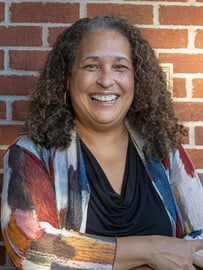
Jann H. Adams
Professor
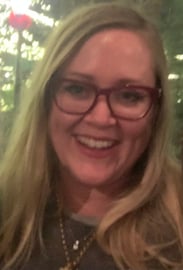
Jennifer G. Andrews
Assistant Professor
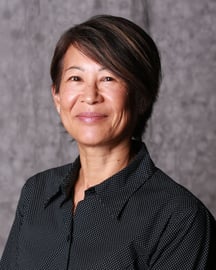
Tina R. Chang
Professor/Department Chair
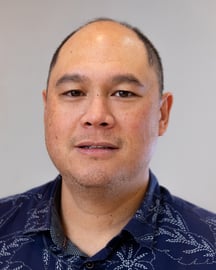
Chris Markham
Associate Professor
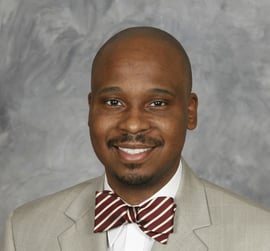
Bryant T. Marks, Sr.
Associate Professor
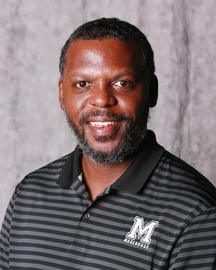
Yohance Murray
Assistant Professor
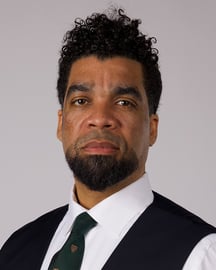
David Wall Rice
Professor
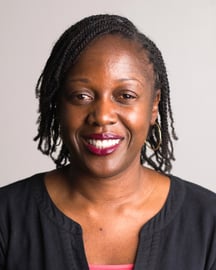
Sinead N. Younge
Professor
